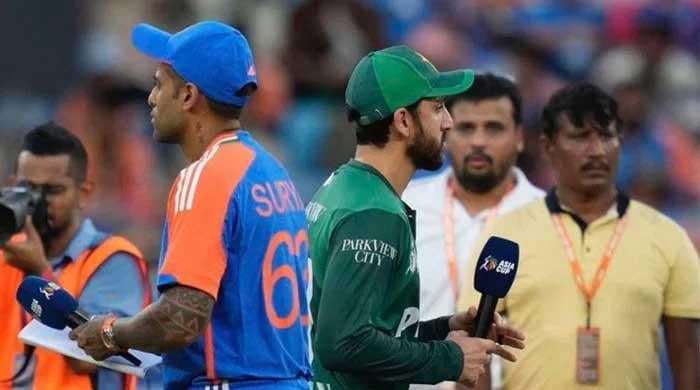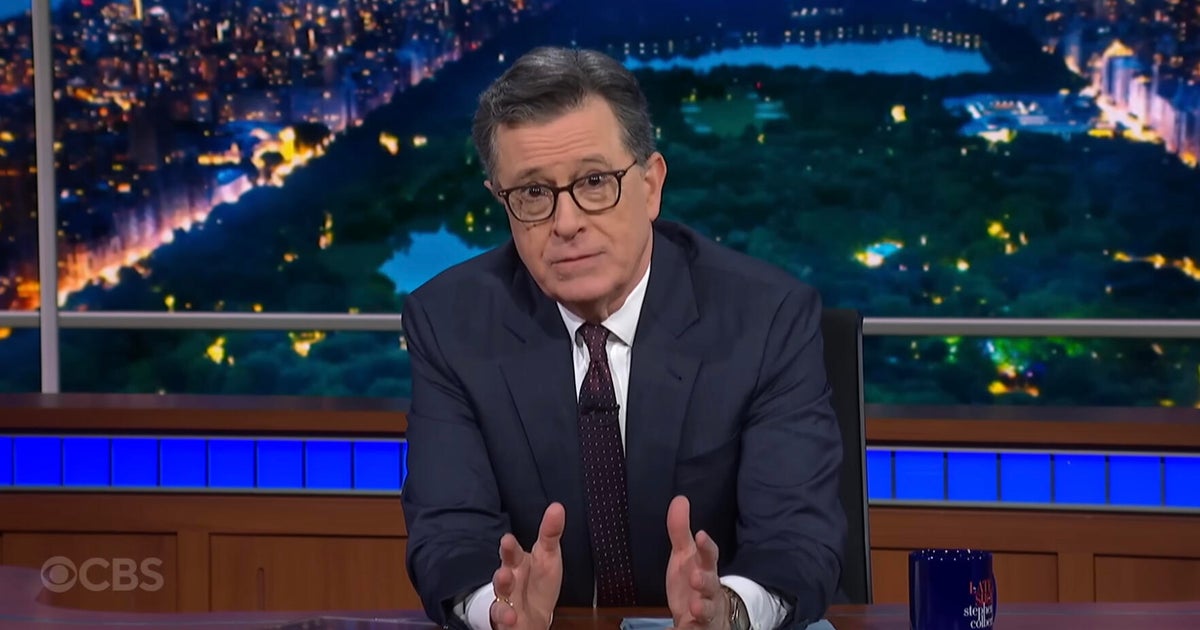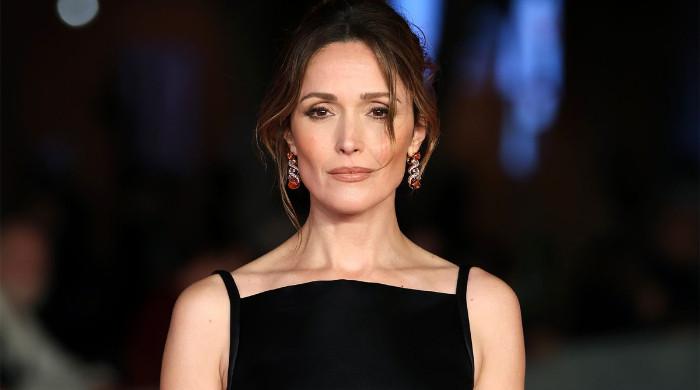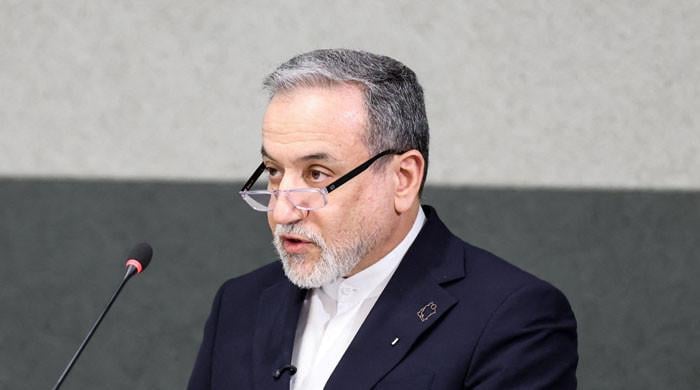Entertainment
What about the spirit of the game?

Hold your breath. India and Pakistan are playing cricket in Dubai today. This somewhat rare display of one of the most intense sports rivalries in the world is being staged for the second time in eight days. And a third encounter during the T20 Asia Cup is very possible.
But what the two teams of the belligerent South Asian countries are playing is not cricket. In a sense, it is politics through other means. That is how their match on Sunday last had triggered a bitter feud on the issue of the Indian players, who had won the match, refusing to shake hands with the Pakistani players.
From Sunday night to Wednesday evening, when the match was set between Pakistan and the UAE, a fierce controversy surrounded the handshake. Pakistan protested against the match referee Andy Pycroft, who — as the Pakistan Cricket Board (PCB) claimed — had conveyed to the Pakistani captain at the time of the toss that there would be no handshakes between the players of the two sides before or after the match.
This was something the PCB was not willing to tolerate. Hence, it threatened that it would pull the Pakistani team out of the Asia Cup if the match referee was not removed from the panel of officials. Eventually, after the suspense had risen to a breaking point, an apology by match referee Andy Pycroft led to Pakistan showing up for the match that had to be delayed for an hour. Pakistan’s not very victory has set the match with India.
Now, respect for and courtesy towards the adversary is the essence of the sportsman’s spirit. Whether it is an expression of greeting, farewell or agreement, a handshake is a part of social etiquette in most civilised communities.
There are many instances in political history when old adversaries shook hands while attending an event. A cricket match between India and Pakistan is certainly a major event that involves the emotions of hundreds of millions.
So, what will it be like this evening, when India and Pakistan come together to play the game in Dubai? Obviously, the match will be held against the backdrop of the diplomatic relations between India and Pakistan. One cannot ignore the four-day war between the two countries in May, which can also be seen as a military match.
Because of how India fared in that confrontation, a show of frustration and anger on its part would not be unexpected. After all, relations between the two countries are exceptionally tense at this time, and a surge of patriotic, even xenophobic, passions is evident on both sides.
Ideally, it should have been possible for cricket to help lower the temperature. This has happened way back in the past. But bilateral cricket has now been suspended since 2013.
The two countries have only played each other in multi-team tournaments, and these matches have been played on neutral grounds. It so happens that a cricket match between India and Pakistan is the biggest draw in the game, and for this reason, tensions between the two countries would affect how major cricket tournaments are planned and played.
When I suggest that cricket could actually play a positive role in reducing tensions, I have in mind two specific examples. In February 1987, the then-president of Pakistan, Gen Ziaul Haq, decided to visit India without being officially invited. It was called an unannounced visit. His pretext was that he wanted to watch a cricket match between India and Pakistan, being played in Delhi.
This was termed as Gen Zia’s cricket diplomacy. He had a meeting with the then-Indian prime minister, Rajiv Gandhi. That visit, it was noted, led to a troop withdrawal from the borders and helped avert a war.
I remember the great excitement in the country that was instigated by the Pakistan visit of the Indian cricket team in 2004. It was a historic and successful tour and the Indian team’s first visit to Pakistan in nearly 15 years. It was viewed as a means to foster peace and improve diplomatic relations between the two countries.
What cricket means in India and Pakistan, and how it governs the imagination of the people, is a part of South Asia’s political history.
I was the editor of this newspaper when Pakistan won the World Cup in 1992 and we had this big, eight-column headline: ‘We rule the world’. Imran Khan earned his charisma as the captain of this side and it paved his path to becoming prime minister, though not without the help of the referee of Pakistan’s politics, India won the World Cup in 1983, with Kapil Dev as the team’s captain.
In 2021, a Bollywood film titled ’83’ was released, with the focus on Kapil Dev. There have been major biopics on the lives of MS Doni and Sachin Tendulkar. But how has this great game fallen to a point where an Indian captain refuses a handshake with his Pakistani counterpart and then proudly defends his lack of manners on a false pretence of national honour? Where will cricket, as well as relations between the countries, go from here?
Finally, I must confess that I am not really a cricket enthusiast. I do not understand many of the game’s rules and other features. However, I often get involved in an India-Pakistan game and love to watch its live transmission.
Another confession I should make is that I am not pleased with my lack of knowledge of the game. I am aware of so many learned and sophisticated individuals who have a great passion for the game. Cricket has been celebrated in literature and poetry. There are so many examples that I can cite.
Reading about cricket and hearing some friends talk about a match or an individual performance or even a particular shot makes me feel that I am missing something. Will cricket between India and Pakistan lessen my regret for not being a big fan of cricket?
Disclaimer: The viewpoints expressed in this piece are the writer’s own and don’t necessarily reflect Geo.tv’s editorial policy.
The writer is a senior journalist. He can be reached at: [email protected]
Originally published in The News
Entertainment
Stephen Colbert slams CBS, says lawyers told him James Talarico interview could not air on “The Late Show”

“The Late Show” host Stephen Colbert criticized CBS on Monday night, saying the network blocked his interview with U.S. Senate hopeful James Talarico from airing.
“You know who is not one of my guests tonight? That’s Texas State Representative James Talarico,” Colbert told his studio audience. “He was supposed to be here, but we were told in no uncertain terms by our network’s lawyers, who called us directly, that we could not have him on the broadcast. Then I was told in some uncertain terms that not only could I not have him on, I could not mention me not having him on. And because my network clearly doesn’t want us to talk about this, let’s talk about this.”
Colbert said the reason CBS prevented “The Late Show” from broadcasting Talarico’s appearance was rooted in new guidance from the FCC for daytime talk shows and late-night TV programs, which requires the shows to provide equal time to opposing candidates.
While “The Late Show” didn’t air Talarico’s interview on TV, it did post it on YouTube, where FCC rules don’t apply.
“The network says I can’t give you a URL or a QR code, but I promise you, if you go to our YouTube page, you’ll find it,” Colbert said.
Talarico, a Democrat, has served as a Texas state representative since 2018 and is campaigning in the Democratic primary to represent his state in the U.S. Senate.
CBS said in a statement: “THE LATE SHOW was not prohibited by CBS from broadcasting the interview with Rep. James Talarico. The show was provided legal guidance that the broadcast could trigger the FCC equal-time rule for two other candidates, including Rep. Jasmine Crockett, and presented options for how the equal time for other candidates could be fulfilled. THE LATE SHOW decided to present the interview through its YouTube channel with on-air promotion on the broadcast rather than potentially providing the equal-time options.”
CBS News has reached out to the FCC for comment.
The FCC issued a notice last month that daytime talk shows and late-night programs must give equal time to opposing candidates. The announcement hinged on a decades-old federal law requiring any FCC-licensed broadcaster that lets a political candidate appear on its airwaves to also offer “equal opportunities” to all other candidates running for the same office. The law exempts “bona fide newscasts” and news interviews from the equal time rule.
FCC Chair Brendan Carr, who was appointed by President Trump and is an ally of the president, wrote on X as he shared the notice: “For years, legacy TV networks assumed that their late night & daytime talk shows qualify as ‘bona fide news’ programs – even when motivated by purely partisan political purposes. Today, the FCC reminded them of their obligation to provide all candidates with equal opportunities.”
On “The Late Show” Monday, Colbert said, “Well, sir, you’re chairman of the FCC, so FCC U, because I think you are motivated by partisan purposes yourself.”
“Let’s just call this what it is: Donald Trump’s administration wants to silence anyone who says anything bad about Trump on TV, because all Trump does is watch TV, OK? He’s like a toddler with too much screentime. He gets cranky and then drops a load in his diaper,” Colbert said.
CBS News has reached out to the White House for comment.
Talarico shared a clip on social media early Tuesday, saying, “This is the interview Donald Trump didn’t want you to see. His FCC refused to air my interview with Stephen Colbert. Trump is worried we’re about to flip Texas.”
Tuesday marked the first day of early voting in Texas for the March 3 primary, in which Talarico faces U.S. Rep. Jasmine Crockett and businessman Ahmad Hassan. They are facing off to take on the winner of the Republican primary, in which longtime GOP Sen. John Cornyn is being challenged by Texas Attorney General Ken Paxton and U.S. Rep. Wesley Hunt. Both races could go to runoffs if no candidate in either party gets 50% of the vote.
Networks, individual shows and talk show hosts have come under fire by Mr. Trump for what he has claimed is their politically biased programming. Mr. Trump has at times called for broadcasters to lose their FCC licenses.
After taking over “The Late Show” from David Letterman in 2015, Colbert is preparing to wrap his final season as its host in May, when CBS will retire the late-night franchise. Although many suggested the cancellation was politically motivated, as Colbert has been an outspoken critic of Mr. Trump and his administration, the network insisted its decision was purely financial.
Entertainment
Oscar-nominated star Rose Byrne gets real about burnout behind the camera

Rose Byrne has opened up about how she relaxes after long and emotionally draining days on film sets.
The 46-year-old actress is currently starring in new psychological comedy drama If I Had Legs I’d Kick You and got nominated for Oscars, where she plays a mother going through a deep personal struggle.
While talking about the pressure of intense roles, Rose admitted that she keeps her coping routine simple once filming wraps up.
She shared: “I drink a lot of alcohol. To be honest, it’s sometimes as simple as having a cocktail after a long day on set or switching on the TV.”
The Platonic actress also explained that she does not follow any spiritual routine but she focus on her quiet family life.
She, however, lives in Brooklyn with her husband Bobby Cannavale and says that they now want calm and private lifestyle.
The actress went on to add that she leans heavily on her close family and home community.
Her children Rocco and Rafael play a big role in keeping her grounded. Rose said, “My children couldn’t care less if I’ve had a long day but in the best and most refreshing way.”
If I Had Legs I’d Kick You is written and directed by Mary Bronstein and also stars Conan O’Brien as her therapist.
Entertainment
Iran foreign minister says progress made in nuclear talks with US

- Araghchi says progress made on main guiding principles.
- Asks US to desist from threatening use of force against Iran.
- Hopes talks will lead to sustainable and negotiated solution.
GENEVA: Iran and the United States reached an understanding on the main “guiding principles” in a second round of nuclear talks in Geneva on Tuesday but work still needs to be done, said Iranian Foreign Minister Abbas Araghchi.
The progress does not mean an agreement will be reached soon but the path has started, he told Iranian media after the talks concluded.
Iranian state media reported earlier that Iran would temporarily shut part of the Strait of Hormuz, a vital global oil supply route, as it held talks over its nuclear programme with the United States, which has sent a battle force to the Gulf region to press Tehran to make concessions.
US President Donald Trump has said “regime change” in Tehran may be the best thing that can happen, while Iran’s Supreme Leader Ayatollah Ali Khamenei said on Tuesday that any US attempts to depose his government would fail.
Just as the talks got under way in Geneva, Iranian state media reported that parts of the strategic strait would close for a few hours due to “security precautions” while Iran’s elite Revolutionary Guards conducted military drills there.
Tehran has in the past threatened to shut down the strait to commercial shipping if it is attacked, a move that would choke off a fifth of global oil flows and drive up crude prices.
Alongside Araghchi, US envoy Steve Witkoff and Jared Kushner took part in the Geneva talks, which were being mediated by Oman, a source briefed on the matter told Reuters.
Speaking at a disarmament conference in Geneva after talks were held between US and Iranian representatives in the western Swiss city earlier in the day, Araghchi said the US should immediately desist from threatening the use of force against Iran.
He said that any sustainable agreement must ensure full recognition of Iran’s legitimate rights.
Araghchi said: “A new window of opportunity has opened, we are hopeful negotiations will lead to a sustainable and negotiated solution.”
-

 Business1 week ago
Business1 week agoAye Finance IPO Day 2: GMP Remains Zero; Apply Or Not? Check Price, GMP, Financials, Recommendations
-

 Fashion1 week ago
Fashion1 week agoComment: Tariffs, capacity and timing reshape sourcing decisions
-

 Tech1 week ago
Tech1 week agoRemoving barriers to tech careers
-

 Business7 days ago
Business7 days agoGold price today: How much 18K, 22K and 24K gold costs in Delhi, Mumbai & more – Check rates for your city – The Times of India
-

 Entertainment1 week ago
Entertainment1 week ago‘Harry Potter’ star David Thewlis doesn’t want you to ask him THIS question
-

 Fashion5 days ago
Fashion5 days ago$10→ $12.10 FOB: The real price of zero-duty apparel
-

 Fashion1 week ago
Fashion1 week agoSaint Laurent retains top spot as hottest brand in Q4 2025 Lyst Index
-

 Fashion1 week ago
Fashion1 week agoADB commits $30 mn to support MSMEs in Philippines






